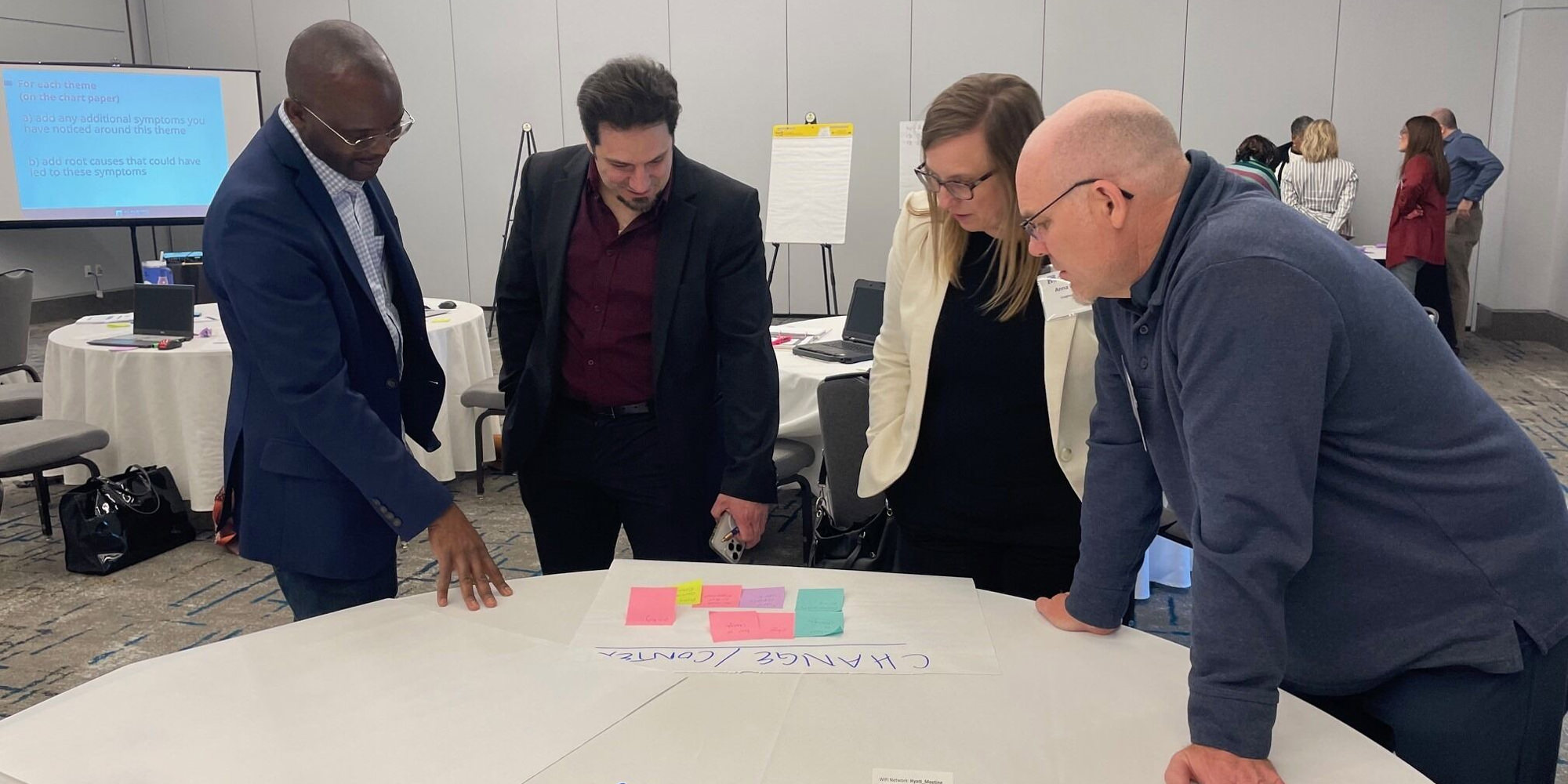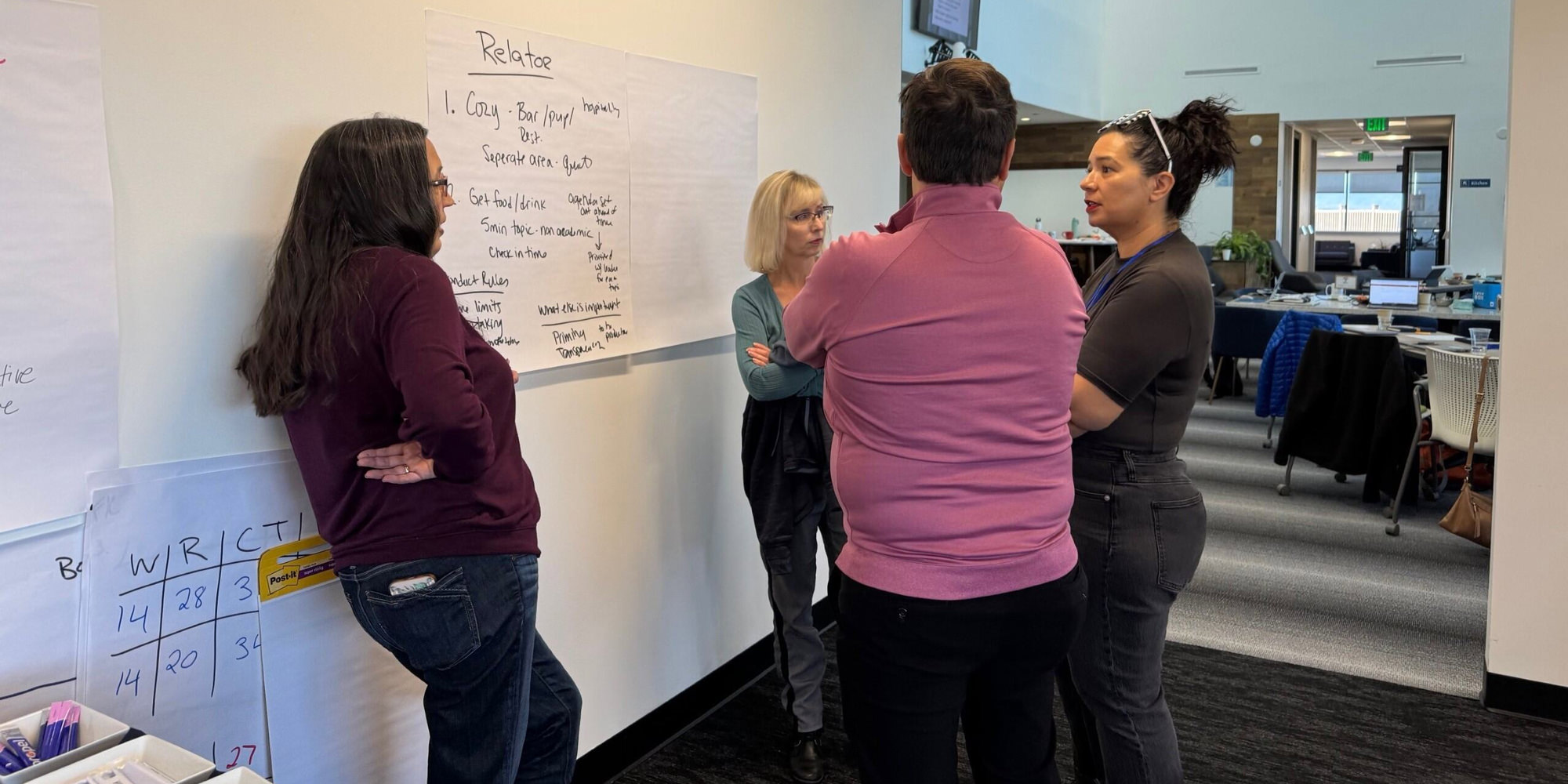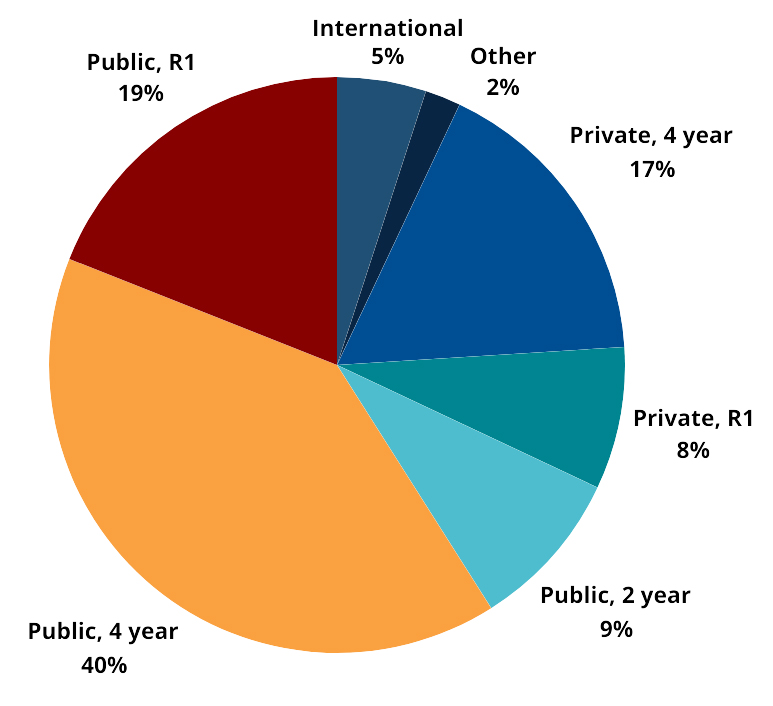Explore how you can enable the engagement, collaboration, and success of your faculty and staff.
What You'll Gain
- Learn who you are as a leader and the balancing act you must perform as chair.
- Create a healthy department culture through activities designed to build equity and buy-in among your faculty.
- Design more effective department meetings using the Five Paths to Leadership® Self-Assessment.
- Address conflict and give feedback confidently with practice built on emotional intelligence and radical candor.

Overview

Leading as an academic department chair is difficult under the best of circumstances. You must balance the competing interests of faculty and administration and stretch limited resources, all while maintaining your own scholarship and teaching loads. Add to this the uncertainty and complexity of leading through an ever-changing higher ed landscape, and it becomes clear that the current environment can test even the most seasoned leaders.
Join us in person for this essential two-day workshop designed specifically to help academic department chairs discover or reconnect with the most effective ways to lead in a variety of situations and circumstances. On day one, you’ll begin by reflecting on your approach to leadership, where you’ll explore ways to enhance your overall leadership effectiveness. You’ll also examine how your position of influence can support and enable the engagement, collaboration, and, ultimately, the success of your faculty and staff. The focus for day two is exploration of one of the trickiest tests a leader must face—conflict—where you’ll practice tools and strategies that will allow you to navigate that conflict with greater confidence and ease.
Session Descriptions
More details about the timing of the days can be found by clicking Learn More and Register, but session descriptions of the two days are below:
Embracing Your Leadership: The Department Chair’s Balancing Acts
Leadership requires the constant evaluation of a series of trade-offs. For instance, you make ask yourself questions like: “Do I lead as a faculty member or as a department head?” “Do I focus on the immediate or the long-term?” or “Am I a colleague or a supervisor?” This session introduces you to the “balancing act” or “seesaw” as a framing device that will help you navigate these inherent trade-offs by orienting your leadership choices and helping you customize your choices to the situation, opportunity, and problem at hand.
Enhancing Your Leadership Effectiveness: The Five Paths to Leadership® Self-Assessment
Self-awareness lies at the heart of effective leadership. To deepen your understanding of your strengths, areas for improvement, and leadership style, you’ll complete the Five Paths to Leadership® Self-Assessment before the workshop. We’ll review your results at the event to help you understand how to adapt your leadership approach to different situations and people, enhancing your effectiveness as a leader.
Revitalizing Academic Passion: Strategies for Combating Burnout and Enhancing Professional Fulfillment
Faculty burnout, disengagement, and other well-being challenges are part of the higher ed landscape. In this session, you’ll explore strategies and tools to meet these challenges and foster a supportive and thriving academic environment.
Designing Your Department’s Culture: An Inclusive Approach to Creating a Healthy Workplace
A healthy academic department is defined by inclusive communication, transparent decision making, and the equitable sharing of responsibilities and rewards. As department chair, you are responsible for building this culture but cannot do it without the full participation of your faculty and staff. With rising levels of burnout and the growing operational challenges of a hybrid workplace, developing a healthy culture can feel daunting. This workshop models an approach that you can take back and emulate with your own faculty and staff to engage them in the important work of designing your departmental culture.
Designing Effective Meetings: Applying the Five Paths to Leadership® Self-Assessment
Building on day one’s discussions related to designing a healthy department culture and combating burnout, we’ll continue the conversation and explore how the Five Paths to Leadership® Self-Assessment can inform and inspire how you design, structure, and lead effective department meetings.
Navigating High-Stakes Conversations to Drive Positive Outcomes
During this session, we’ll begin to address conflict and difficult conversations. Through exploring emotional intelligence and your own identity, you’ll learn how you can approach high-stakes conversations with your faculty and staff with confidence. You’ll have time to prep for and practice an upcoming high-stakes conversation you know you need to have.
Navigating Challenging Conversations: Communicating Critical Feedback
Building upon the previous session, we’ll explore the strategies you can use to communicate critical feedback to faculty and staff. In this session, you’ll be introduced to a series of talking points that can help you initiate uncomfortable conversations with your subordinates, peers, and superiors. You’ll also learn how “radical candor” can help you challenge behavior while demonstrating that you care about the other person. To apply these strategies, you’ll practice these skills in role play.
Bringing It All Together: Take Aways and Next Steps
We’ll close our time together with a reflective activity designed to recap your key insights. You’ll identify how you can apply these insights to your own leadership choices when you return to campus.
Who Should Attend
We invite academic department chairs, program directors, and center directors of all experience levels to attend. This is a terrific opportunity to step away from the day-to-day to focus on your leadership development alongside a cohort of other department chairs from across the country. If you’ve been looking for an opportunity to gain greater self-awareness of yourself as a leader—while also expanding your network—this conference is for you!
How You'll Use This to Move Work Forward
- Department Chairs - Enhance your overall leadership effectiveness in a variety of real-world scenarios.
- Program & Center Directors - Learn to lead faculty and staff to meet center or program goals.
- Faculty Affairs Leaders - Incorporate our resources into your own department chair training to develop a culture of impactful leadership.
Bring a team! Register 3 or more people and save more than $1,000! Discounts will be automatically applied at checkout.
Who Are Our Past Attendees

Send a Cohort and Enhance Your Chairs' Experience
Train a cohort of your chairs and strengthen their internal networks through group coaching by purchasing our Department Chairs Success Program. Academic Impressions has worked with over two thousand chairs and program directors to help them develop leadership skills needed to succeed, address major campus initiative and changes, and think strategically about department resources. Set your chairs up to thrive with this program! Contact us to learn more.
Speakers

Sierra Dawson, Ph.D.
Associate Vice Provost for Faculty & Leadership Development, University of Oregon

Jeanne A.K. Hey, Ph.D.
Leadership Development Specialist

Gilpatrick Hornsby, Ph.D.
Associate Vice Provost, Faculty Success, James Madison University
What makes our events different?
Academic Impressions workshops provide the opportunity for quality conversations and relationship-building through both formal and informal networking opportunities in an intimate setting. Our in-depth and hands-on approach to learning provides you with actionable takeaways.
Learn More About the Academic Impressions Workshop Experience ➞
Grow Leadership. Maximize Your Budget.
Empower your team with professional development that pays off. Our Workshop Group Packs help you build leadership capacity while saving money. Discounts are automatically applied at checkout.
What Our Attendees Are Saying
“I thoroughly enjoyed this workshop. The sessions offered practical solutions to real-world problems, thanks to both the presenters and the active participation of attendees. I highly recommend it to anyone looking to enhance their leadership skills and increase their effectiveness in their role.”
“The Essential Leadership Skills for Department Chairs is one of the most timely and effective workshops I have attended in supporting my growth and development as a department chair. The guided discussions and active learning provided me with tools I can begin using immediately. I also developed a network of peers from across the US.”
“Fantastic experience! Every presenter was well-prepared, and the agenda was spot on, creating a friendly and open space that made sharing experiences easy. The balance of serious administrative pro tips, empathy-based strategies, and levity, combined with good food and community building, created a positive and enjoyable experience. I appreciated the time together with so many people with diverse experiences and perspectives.”
Pricing
October 23-24, 2025
Baltimore, MD
Starting at:
- Member Price: $2,345/person
- Non-Member Price: $2,595/person
- Team Discount: $2,000/person (for 3 or more)
Questions About the Event?

Have you attended this event in the past or do you know someone who may be interested? Share it with your network.

